Ecological substrates and natural fertilizers for garden plants
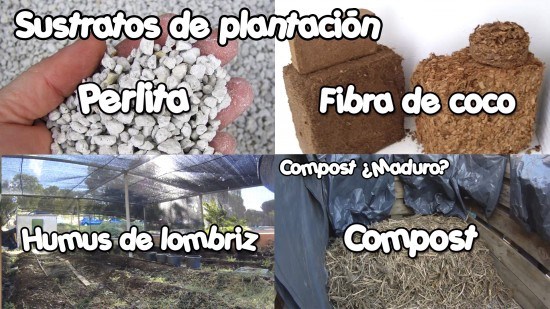
In organic farming it is essential to use suitable substrates and fertilizers, ecological substrates and natural fertilizers that do not have chemicals and that allow plants to grow healthy and strong.

Characteristics of ecological substrates
To be able to say that we are using an «ecological substrate», in the first place it must lack any type of synthetic chemical fertilizer (ecological fertilizers or natural fertilizers must be used to pay it) and it must not have been subjected to any artificial disinfection (radiation ionizers to disinfect the soil, for example, are not allowed in Organic Farming).
In addition, the use of ecological substrates has positive effects or benefits for the conservation of the environment. For example, ecological substrates are those:
- Recyclable: by-products of other activities or industries that in turn are biodegradable or recyclable.
- That limit the development of pathogens, which many times prevents their treatment with artificial chemicals: pine bark composted to prevent / eliminate some diseases caused by fungi.
- That avoid the nutrient washout.
- That optimize water consumption: substrates with high water retention and cation exchange capacity.
Most common substrate components
- UNIVERSAL SUBSTRATE
- COCONUT FIBER
- PINE BARK
- FOREST LAND
- GRANITE, SILICE, VOLCANIC SAND …
- ROCK WOOL
- PEAT
- VERMICULITE
- PERLITE
We will dedicate another article to explain how to choose and / or properly combine the different materials and the techniques for preparing and maintaining the substrate.
You also have more information on suitable substrate characteristics in this post I wrote about the «ideal substrate».
Natural fertilizers: ecological fertilization
We have already seen that, in addition, if it has been a while since we established the garden or if the contribution of nutrients from the substrate is low, we must fertilize it. We are going to see the different fertilizers or manures that we can use in our organic garden.
– Organic fertilization: compost, green manures, manure, liquid fertilizers …
Compost
It is the most widely used fertilizer in organic farming. It is very interesting because we can make homemade compost ourselves (so we save having to buy fertilizer) and we also take advantage of domestic organic waste and that of the garden itself.
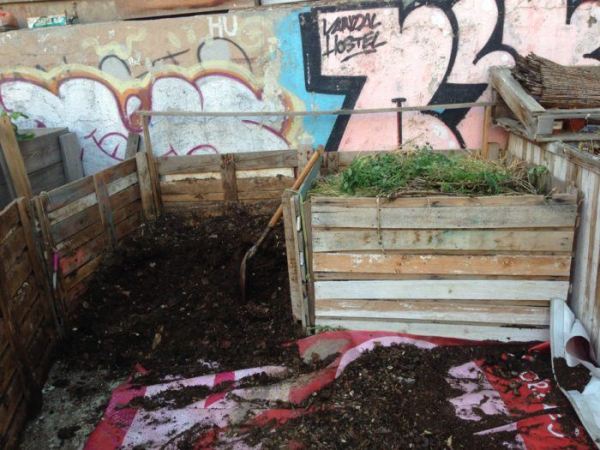
Composting is a technique for the controlled decomposition of waste to obtain humus. This transformation is a biological decomposition, that is, it is carried out by microorganisms (fungi, bacteria and small insects or arthropods) so the conditions (humidity, temperature, air, size of the waste, time of the process, etc.) have to be within limits. (We will dedicate an article to the traditional composting technique).
We can also buy industrial compost or, as an alternative to traditional compost, use vermicompost or worm compost , obtained thanks to the action of the California red worm ( Eisenia foetida ).
Green manures
They are crops of different fast-growing plants (legumes, grasses, cruciferous …) that are sown, cut and buried to improve the properties of the soil . Not only do they fertilize the soil with the humus that comes from the buried organic matter, they also improve its structure and favor the growth of populations of beneficial microorganisms.
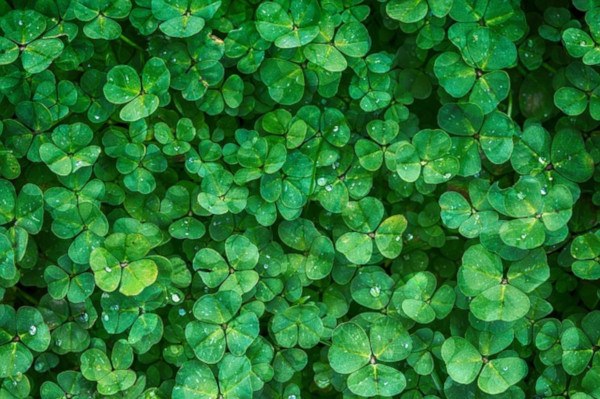
The crops most used as green manure due to their rapid growth and the amount of nutrients they provide are: legumes such as clover, alfalfa, vetch, pea, broad bean, lupine … cereals or grasses (usually associated with legumes) such as rye, oats or barley , and some crucifers such as rapeseed, white mustard or horseradish.

For adequate humus production, the crop must be cut between flowering and fruit formation, and buried, not immediately but after aerating for a few days.
Instead of burying the residues, we can also use them to create a cover or vegetable mulching , which will protect the soil.
Manure
Waste from extensive livestock or extensive ecological farms are used. The most used are the manures of: bovine, ovine, caprine, equine, pig slurry, chicken manure, guano …
Proper manure management is very important before applying it to the soil to promote the formation of good humus, the absence of weeds, seeds or pathogens and to avoid the loss of nutrients. Before adding it to the soil, it must «mature» in a well compacted heap without oxygen ( anaerobiosis ) or in a composter under aerobic conditions.
Peat
There are many types of peat from bogs, where sphagnum moss accumulates . E ste organic fertilizer comprises organic matter, water and minerals. In addition to providing organic matter, it improves the structure of the soil and favors the slow release of nutrients. It is a non-renewable natural resource, since the rate of extraction from peat reserves is being higher than that of natural generation.
Prepared organic fertilizers and humic amendments
There are many types of natural organic fertilizers already prepared from algae, plant debris … They can be liquid or solid (crushed).
We must ensure that the product is suitable for use in organic farming, since not all natural products are. Follow the manufacturer’s recommendations and pay attention to whether it is a fertilizer applied to the substrate or to the leaves of the plant.
– Mineral fertilization
Starting from the fact that organic fertilization is essential due to the contribution of nitrogen, microorganisms and because it favors the structure of the soil, it is also possible to use mineral fertilizers to complement it and make up for any deficiency , directly providing useful nutrients for the plant.
In organic farming, mineral fertilizers must be natural: synthetic products cannot be used, or with the addition of chemical products.
Below are the types of natural materials for natural fertilization allowed in organic farming according to the most important nutrient they provide:
- Potassium: wood ash, potassium salts such as sulfates or potassium chloride (sylvinite, carnalite, kainite …)
- Phosphorus: Calcinated natural phosphates (such as aluminum-calcium phosphate, which also provides aluminum and calcium), Thomas slags …
- Magnesium and Sulfur: the amount supplied to the soil with organic fertilization is usually enough, but if it is not enough, natural mineral amendments can be used from dolomite, magnesite, epsonite (with magnesium) or sulfur.
- Silicon: crushed siliceous rocks.

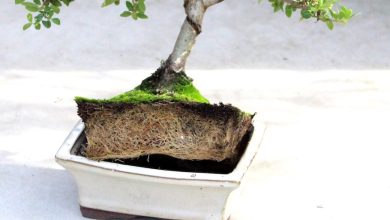
![Photo of Ardisia: [Cultivation, Irrigation, Care, Pests and Diseases]](https://www.complete-gardening.com/wp-content/uploads/2022/08/ardisia-cultivation-irrigation-care-pests-and-diseases-390x220.jpg)
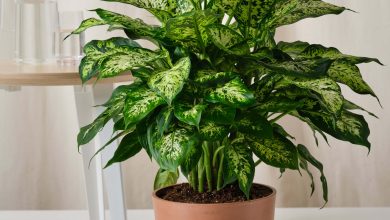
![Photo of Ponds in the Garden: [Advantages, Construction and Decoration]](https://www.complete-gardening.com/wp-content/uploads/2022/08/ponds-in-the-garden-advantages-construction-and-decoration-390x220.jpg)